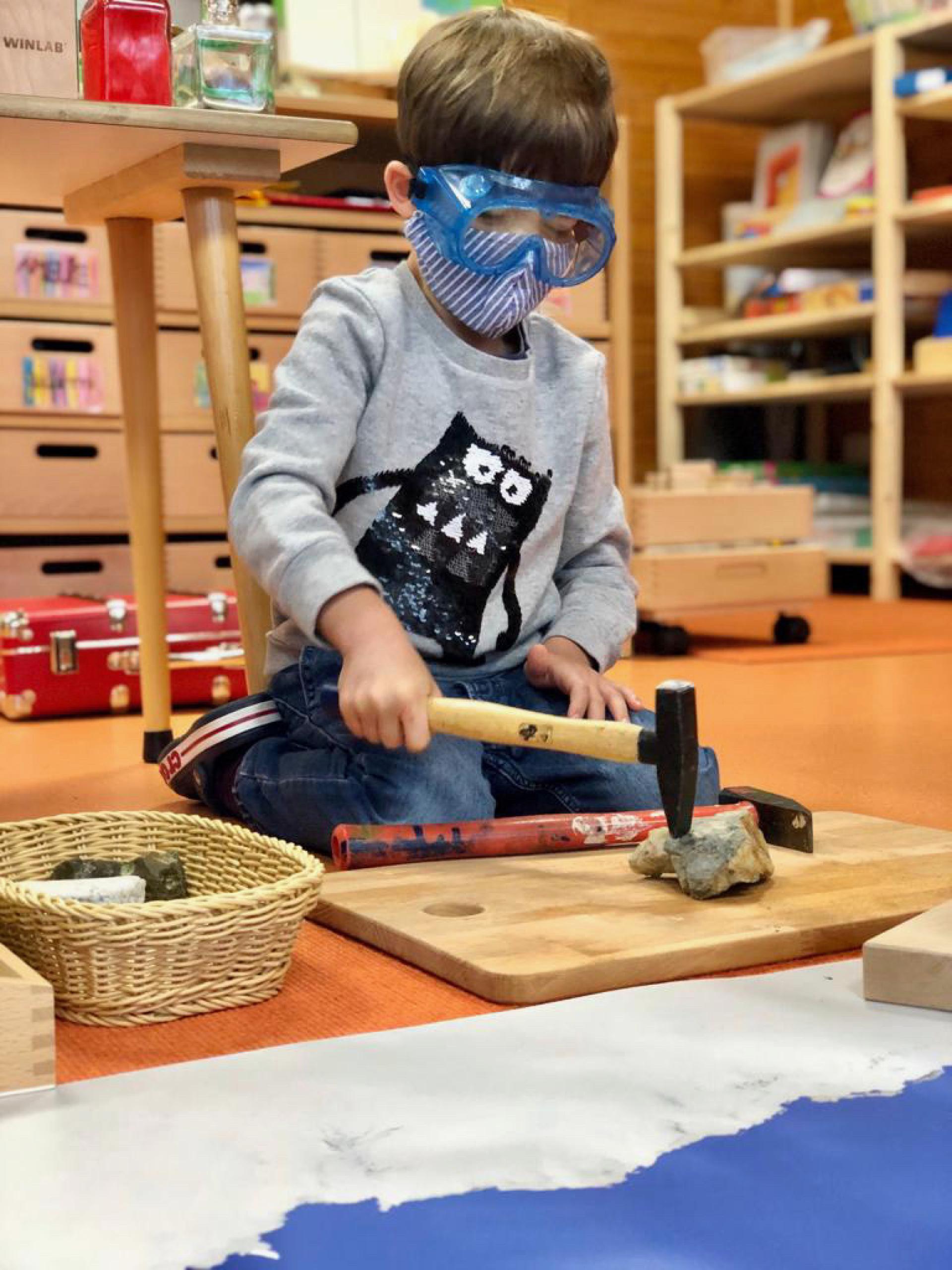Interdisciplinary Research & Discovery
Key skills for the future
In the face of rapid developments, we know that school cannot primarily be about imparting knowledge in a one-sided way. Our children will live and work in a changed world. However, key skills for the future such as creativity, communication and critical thinking can only be acquired actively, not taught theoretically. Self-confidence, curiosity and the desire to try things out and create play a central role in this. Our school offers an ideal environment for the development of these attitudes and skills.
Inquiry-based learning
Inquiry-based learning places the active learner at the centre. Pupils are encouraged to develop their own questions, actively explore topics using different methods, manage and reflect on their own learning, exchange ideas and present results. A positive error culture encourages them to take risks, try things out and thus develop.
Cross-curricular topics: Learning in epochs
We all learn every day, all our lives. Our brains do not stick to the boundaries of school subjects, on the contrary, we learn in contexts and thematic references. This integrated way of learning is also more natural and motivating for children than a compartmentalised approach. In epoch lessons, the children at AIS therefore deal with a topic over a longer period of time, which is examined and analysed from different perspectives.
In the face of rapid developments, we know that school cannot primarily be about imparting knowledge in a one-sided way. Our children will live and work in a changed world. However, key skills for the future such as creativity, communication and critical thinking can only be acquired actively, not taught theoretically. Self-confidence, curiosity and the desire to try things out and create play a central role in this. Our school offers an ideal environment for the development of these attitudes and skills.
Inquiry-based learning
Inquiry-based learning places the active learner at the centre. Pupils are encouraged to develop their own questions, actively explore topics using different methods, manage and reflect on their own learning, exchange ideas and present results. A positive error culture encourages them to take risks, try things out and thus develop.
Cross-curricular topics: Learning in epochs
We all learn every day, all our lives. Our brains do not stick to the boundaries of school subjects, on the contrary, we learn in contexts and thematic references. This integrated way of learning is also more natural and motivating for children than a compartmentalised approach. In epoch lessons, the children at AIS therefore deal with a topic over a longer period of time, which is examined and analysed from different perspectives.

